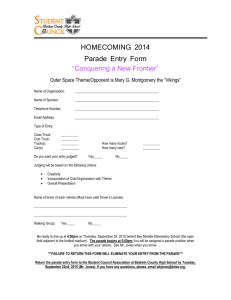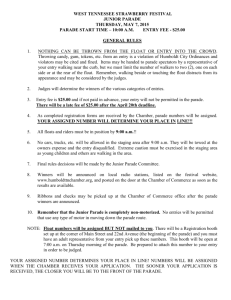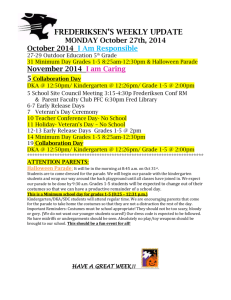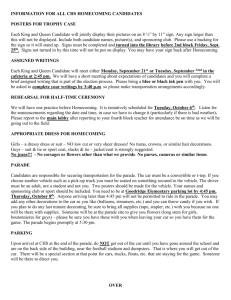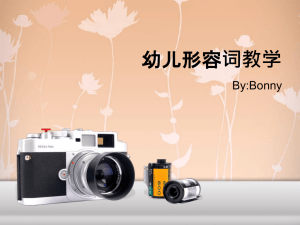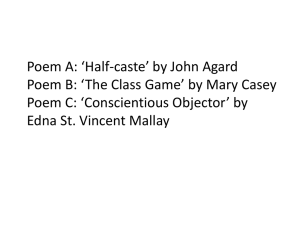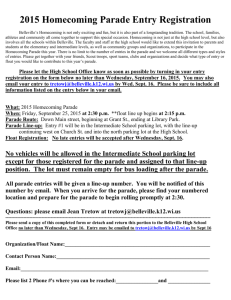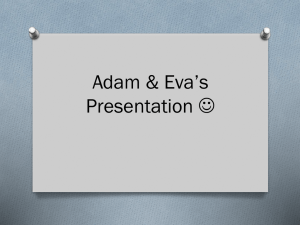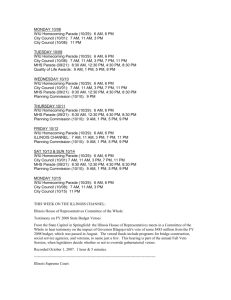parade-s-end
advertisement
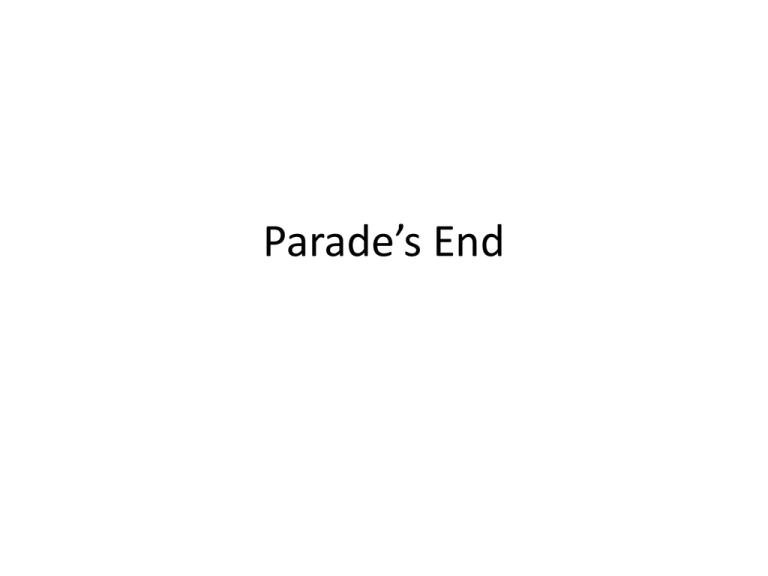
Parade’s End Suggests wealth Suggests he is uneasy Dad parked our Granada, a champagne-gold by our superstore on Blackstock Road, my brother’s eyes scanning the men who scraped the pavement frost to the dole, Unemployed – one ‘got on his bike’ over the hill suggests poverty or the few who warmed us a thumbs-up for the polished recovery of our re-sprayed car. Implies that not many people are friendly to them Suggests friendliness Their car has been vandalised Suggests poverty Cheap cuts imply poverty Council mums at our meat display nestled against a pane with white trays swilling kidneys, liver and a sandy block of corned beef, loud enough about the way darkies from down south Come op ta Yorksha, mekkin claaims on aut theh can befoh buggrin off in theh flash caahs! Racist term Yorkshire dialect reinforces the cultural difference between ‘them’ and ‘us’ Suggests jealousy Long day – they work hard Caesura draws attention to “Bolted” showing how they feel unsafe At nine, we left the emptied till open, clicked the dials of the safe. Bolted two metal bars across the back door (with a new lock). Spread trolleys at ends of the darkened aisles. Then we pressed the code for the caged alarm and rushed the precinct to check it was throbbing red. Implies the last one was destroyed Creates sinister tone Shows their fear Reinforces that they don’t feel safe Illustrates the lack of respect from the community Thundering down the graffiti of shutters against the valley of high-rise flats. Ready for the getaway to our cul-de-sac’d semi-detached, until we stood stock-still: watching the car-skin pucker, bubbling smarts of acid. In the unstoppable pub-roar from the John O’Gaunt across the forecourt Almost personifies the car making the crime more alarming The colon creates a pause – while they look on in shock We returned up to the shop, lifted a shutter, queued at the sink, walked down again. Three of us, each carrying pans of cold water. Then we swept away the bonnet-leaves from gold to the brown of our former colour. Literally = the colour of the car Metaphorically = they will always be judged for the colour of their skin Parade’s End What could the title mean? • The shop is at the end of a parade of shops • The family may feel that they are coming to the “end of their tether” • The family are at the “end” of the community (on the outskirts / not accepted) What other words in the poem suggest this? • “cul-de-sac’d / semi-detached” How can you connect this poem to “Half-Caste”? Similarities • Both suggest that people can be judged because of their skin colour. • Both poets create contrasts in their poems • Both poems show a form of conflict • Both poems protest about something being unfair Differences • The speaker in “Half-caste” is angry but the speaker in “Parade’s End” is afraid and dismayed. • In “Half-Caste”, the poet speaks directly to the reader but “Parade’s End” gives one person’s viewpoint of his day.
